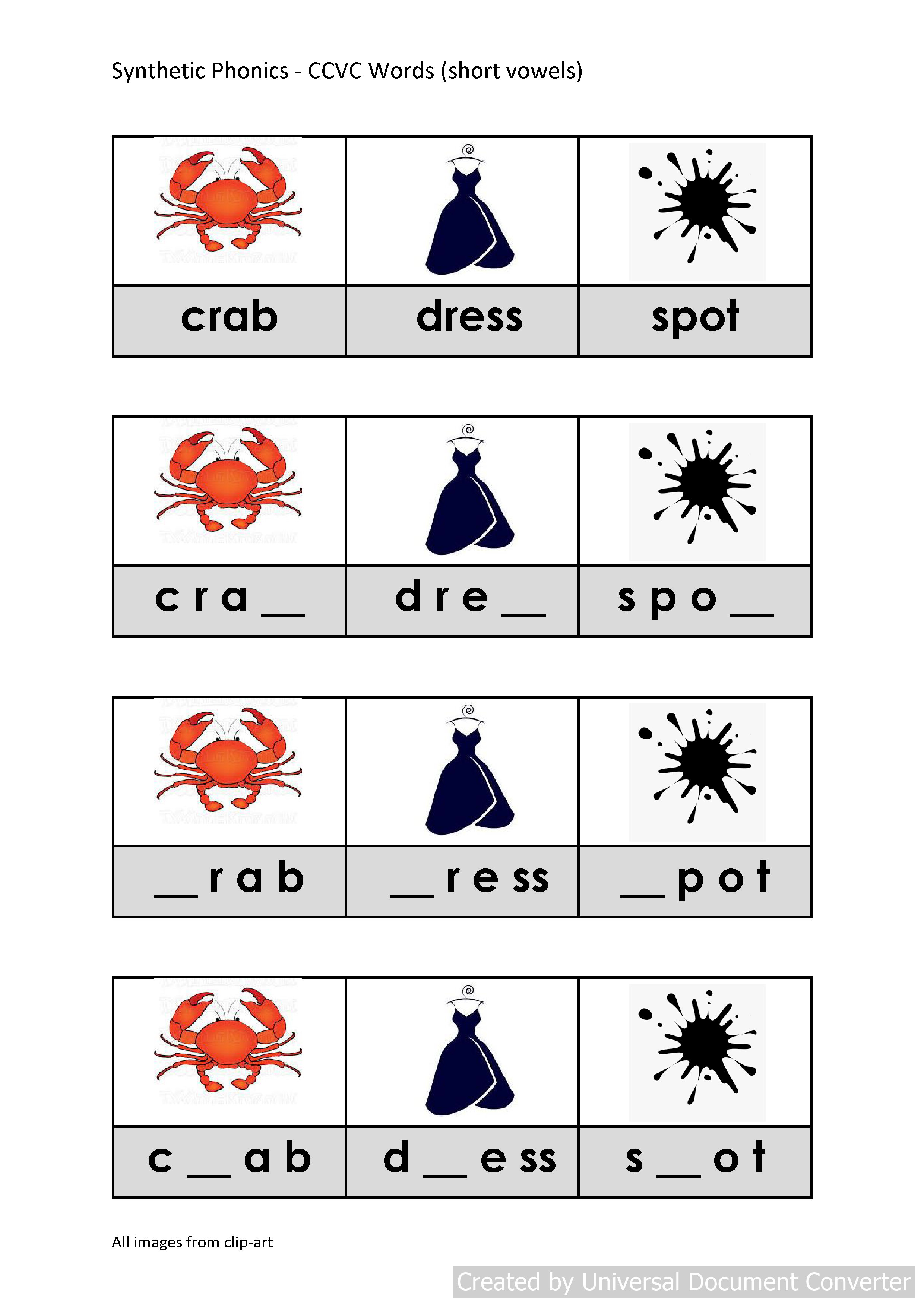Phonics Activities CCVC Words

Phonics Activities CCVC Words: The free resource available to download from this page is based on synthetic phonics principles. The worksheets provide a blueprint for parents and classroom teachers to complete specific synthetic phonics activities in the classroom or at home.
The activities to be released in the coming months will focus attention on the structure of simple CVC, CVCC and CCVC words and the many word combinations that can be formed from the five short vowels: a e i o u.
This webpage focus is on CCVC words.
Phonics Activities CCVC Words - Instructions
The CCVC word lists for completion can be downloaded at the end of this page. Each page in the download will feature a picture of the target word with words that will be missing letters.
It is important that your child sound out each phoneme while writing the missing letters/graphemes. An important principle of synthetic phonics is that the sound is the most important thing, the letter/s should be thought of as the grapheme symbol that represents the sound.
Word list for completion…
crab, dress, spot, grab, gruff, plan, smell, trap, step, clip, grin, skip, slam, slip swill, swim, trip, twin, drop, flag, frog, flop, stop, drum, grub, plum, plug, slug, snug, bluff
Each of the target words is a CCVC word. That is, each word has four sounds, three are consonant sounds (C), and one is a vowel sound (V). In these activities the vowels are all short vowels – a i o e u - and are consistently the same sound when spelling.
Directions
- Your child’s task is to write the missing letters/graphemes in each box.
- There are 7 boxes for each word at different levels of completion.
- The first series of three boxes contain the complete target word, and is to be used as a reference.
- Cover completed words before starting the exercises.
The last of 3 boxes has four dashes only _ _ _ _ and could be considered the most difficult of the tasks. Complete this series of boxes last. The other boxes can be completed in any order.
Tips
- Cover the target words.
- Encourage your child to sound out the sounds while writing the letters.
Feedback for errors, i.e. your child writes cabr for crab. Say, ‘The /r/ sound comes right after the /k/ sound c…r…a…b.’ (together) Point to your child’s incorrect r spelling. ‘What do you need to do?’
Phonics Activities CCVC Words - Final Thoughts
Note that each set of three words has accompanying pictures sourced from clipart. Each set of boxes becomes increasingly difficult, and students should not initially attempt to complete the exercises independently.
The synthetic phonics worksheets should not be viewed as a replacement for classroom based structured synthetic phonics tuition but viewed more as a support for systematic, classroom based tuition and for when your students are working through decodable readers.
Updated 13/08/2020

